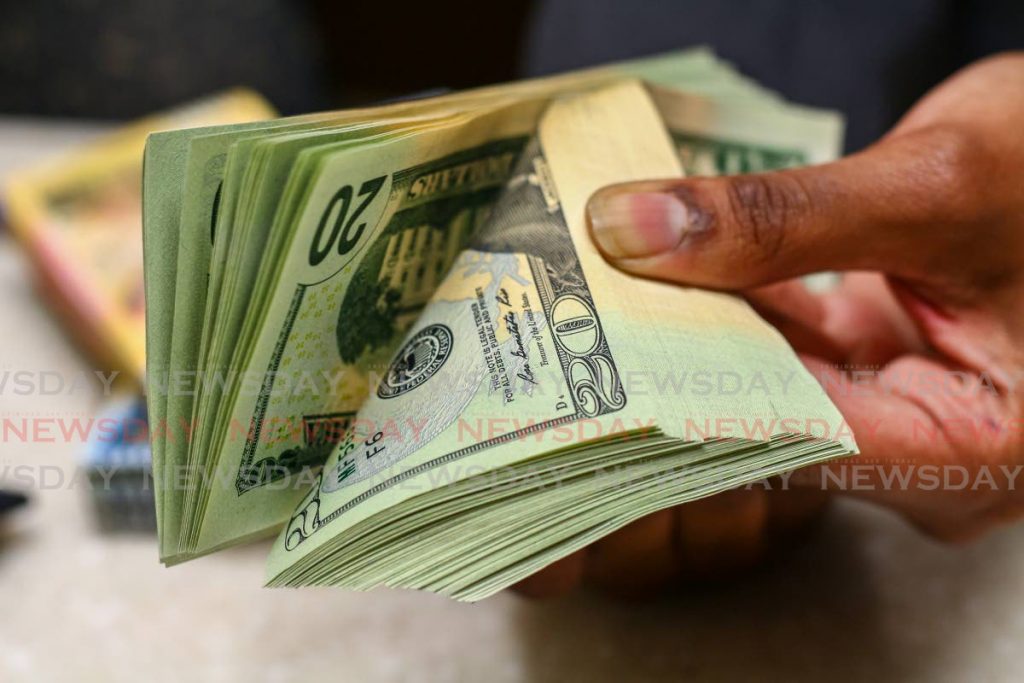Concrete steps needed to tackle forex inequities

THE EDITOR: I wish to shed some light on a matter of paramount importance regarding the distribution of foreign exchange in our commercial sector.
In recent discussions surrounding this issue, concerns have been raised about the equitable distribution of foreign exchange, prompting a call for urgent intervention from Minister of Finance Colm Imbert. It is imperative that the prevailing inequities be addressed promptly to foster fair play, particularly in light of the challenges faced by small and medium-sized enterprises (SMEs).
Despite official assurances denying the existence of a foreign exchange crisis, SMEs continue to grapple with inadequate allocations, hindering their trade activities, employee retention and growth prospects. The disconnect between these assurances and the harsh realities faced by SMEs is undeniable, necessitating immediate and decisive action.
Imbert's commitment, as articulated in the budget address last October, to "stabilise and strengthen the foreign exchange market" is a laudable goal that must be translated into concrete action. This should involve focused dialogue with representatives of the SME sector, a thorough investigation into ongoing issues, and the development of effective strategies to resolve the crisis.
The unfulfilled pledge to establish "the most appropriate policy for allocation, management and distribution of foreign currency" exacerbates the situation, posing a significant threat to the viability of small and medium-sized businesses. This, in turn, raises concerns about employment and market competitiveness.
Urgent official action is required, and I strongly urge the minister to intervene promptly in the foreign exchange crisis, demonstrating a commitment to rectifying the situation and safeguarding the interests of SMEs and the broader commercial sector.
In tandem with the above, assertions about a forex crisis merit careful consideration. Our foreign exchange dynamics are indeed multifaceted, considering factors such as forex reserves, foreign debt and the injection of funds into banks. Evaluating our forex reserves in light of foreign debt reveals a net reserve of just US$1.12 billion, and it is crucial to consider the substantial portfolio of US-denominated assets held by the banking sector.
The claim about banks selling forex without possession should be examined in this context, taking into account the injection of at least US$100 million into banks monthly by the Central Bank and instances of surplus, challenging the narrative of consistent forex shortages. It is essential to dispel the notion that proximity to a bank dictates access to forex, recognising that access is influenced by economic and political standing.
As we discuss Imbert's intervention, it is imperative to acknowledge the artificial support our reserves receive from debt. Withdrawals from the Heritage and Stabilisation Fund (HSF) contribute to the foreign reserve account, artificially inflating our forex reserves. This dynamic adds complexity to the overall discussion on the distribution and utilisation of foreign exchange in our economic landscape.
The minister must uphold his commitment to establish the most appropriate policy for foreign currency allocation. The worsening situation threatens the viability of small and medium-sized businesses, posing risks to employment and market competitiveness.
While public discussions serve a purpose, they won't solve this systemic issue. Urgent official action is needed. I strongly urge Minister Imbert to intervene decisively in the foreign exchange crisis to safeguard our economy and the livelihoods of our citizens.
RUSHTON PARAY
via e-mail


Comments
"Concrete steps needed to tackle forex inequities"